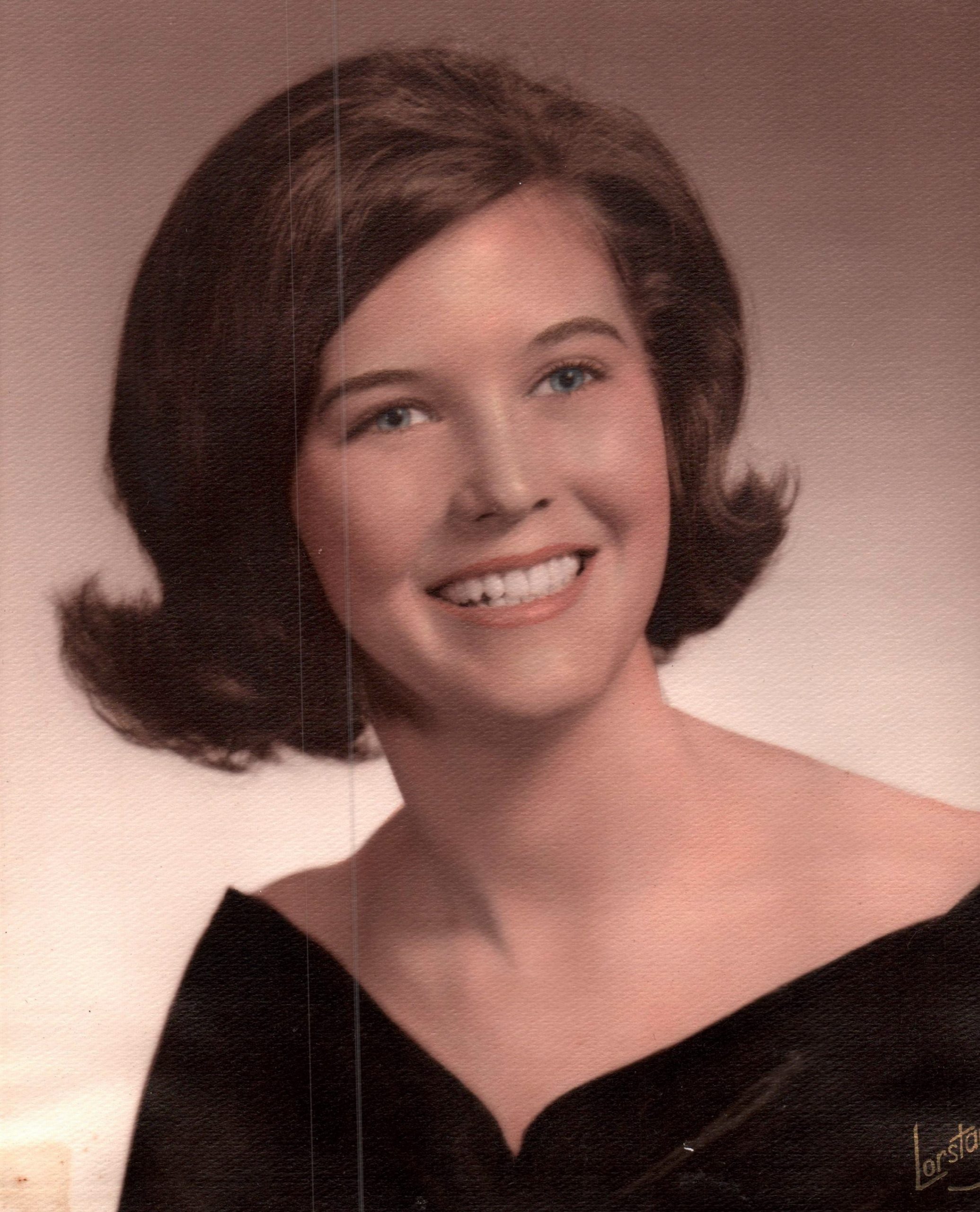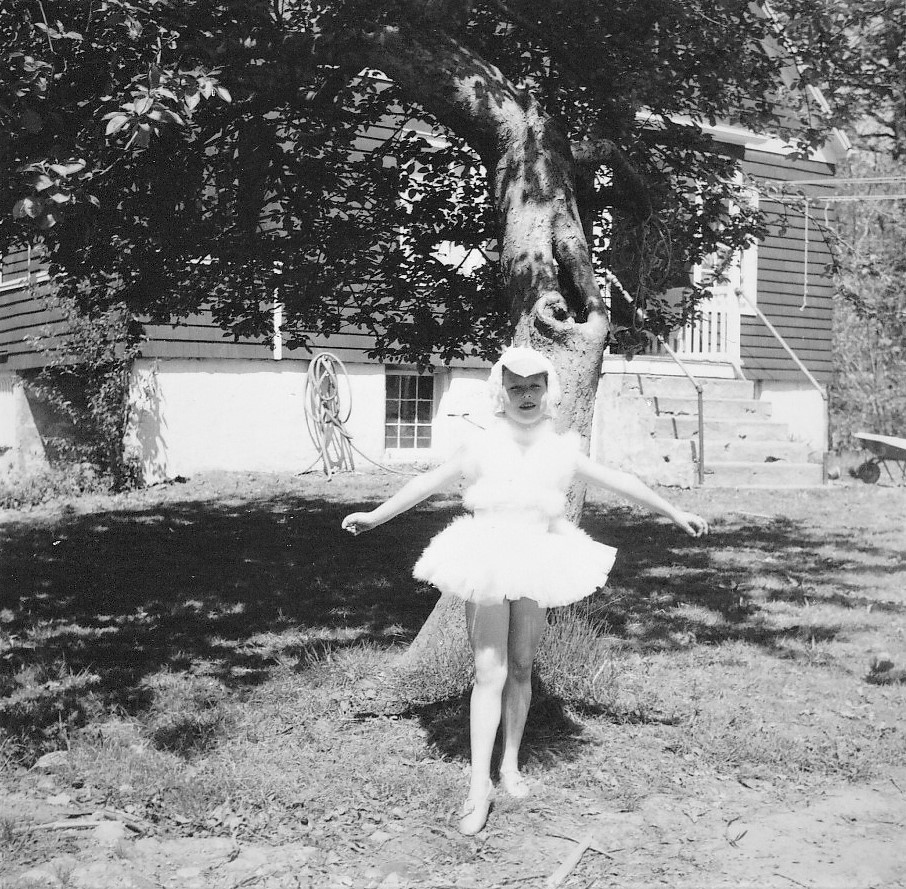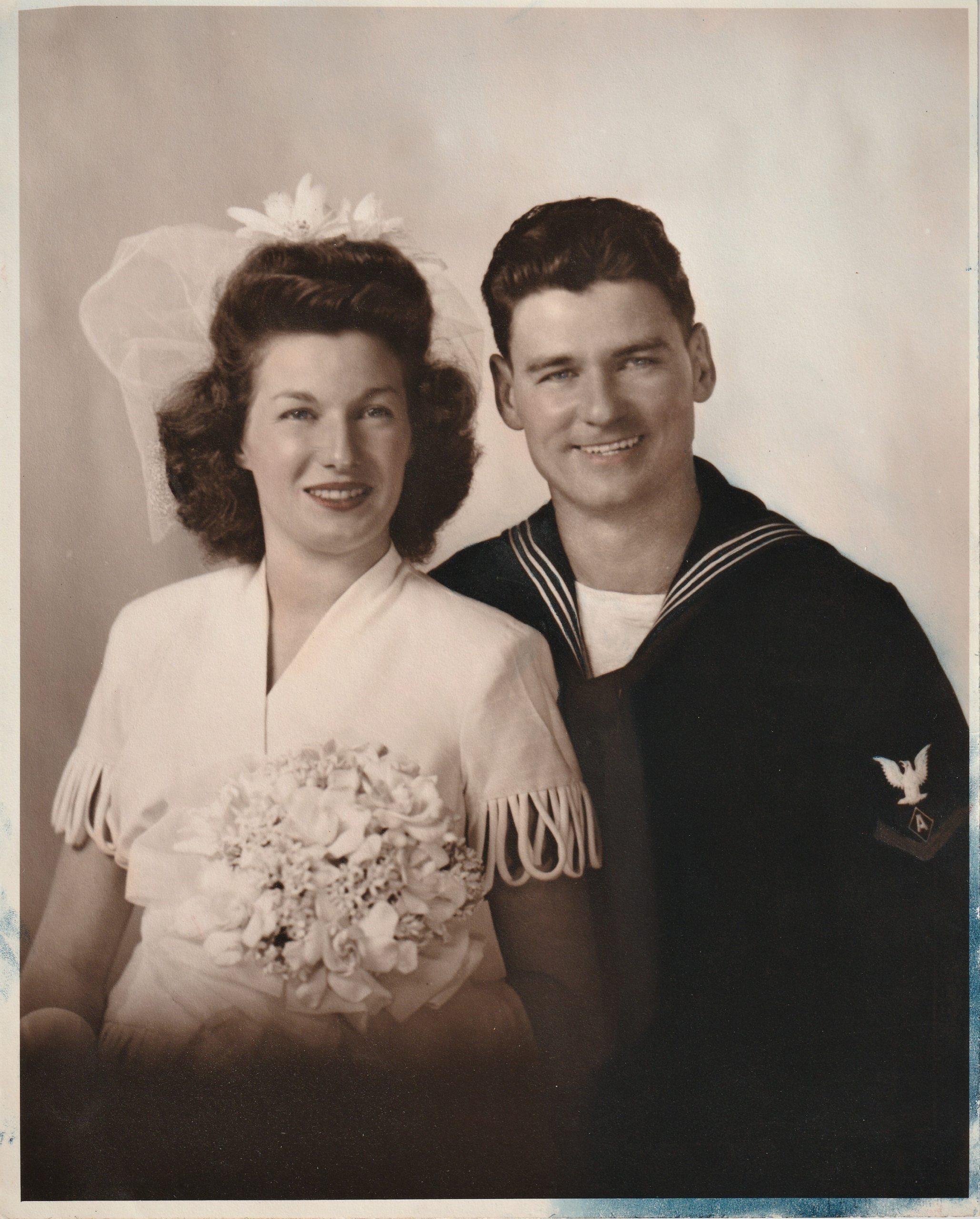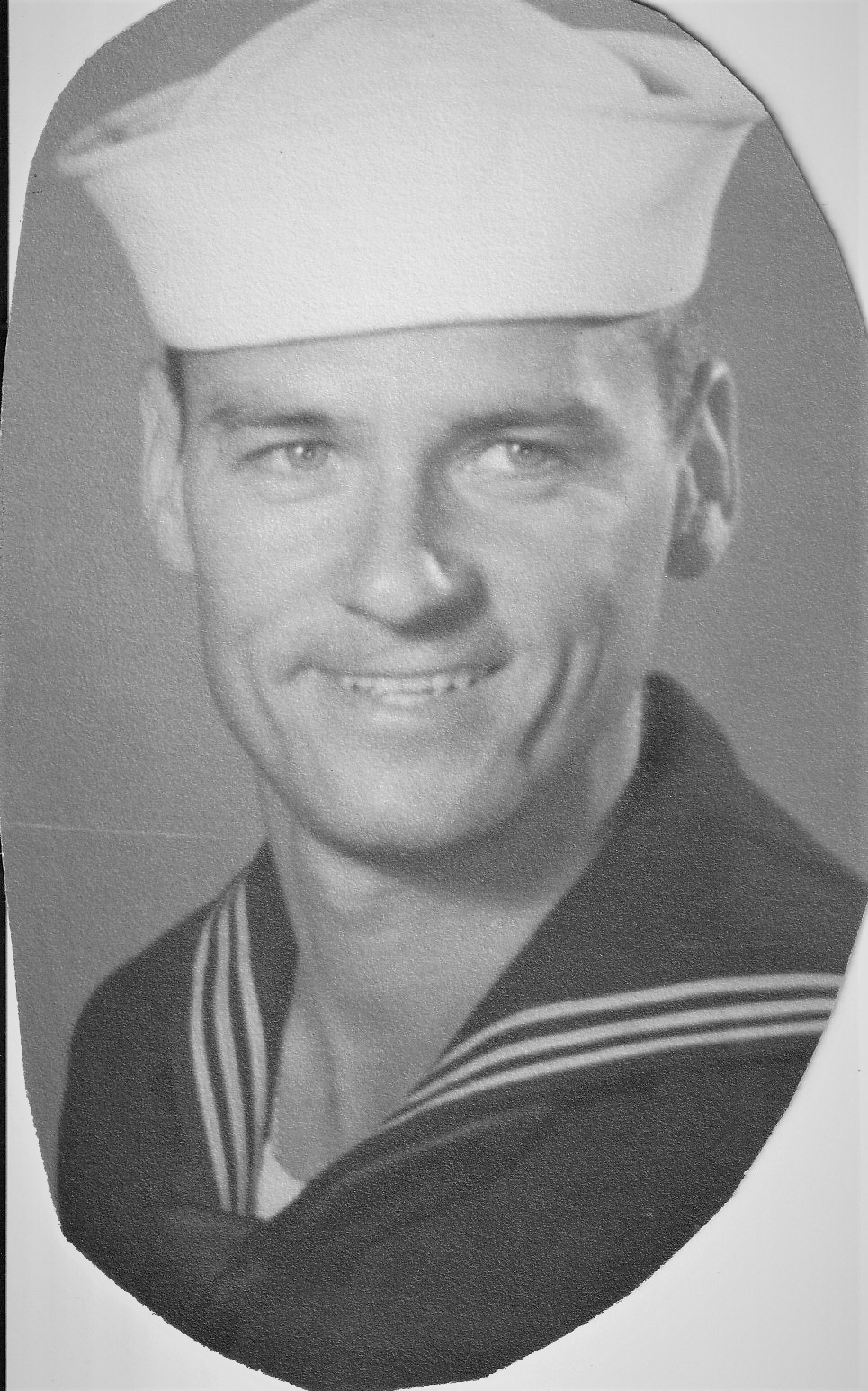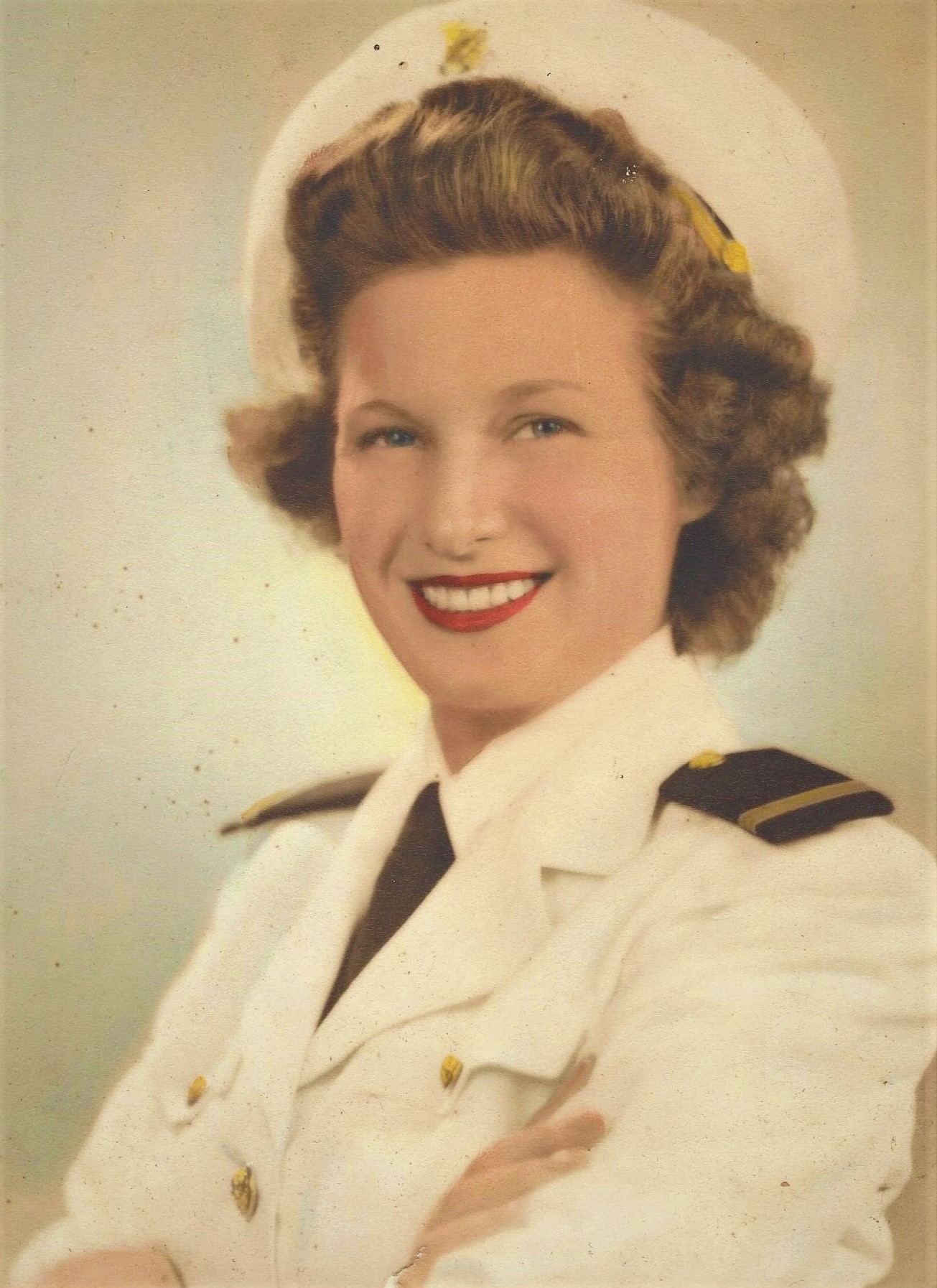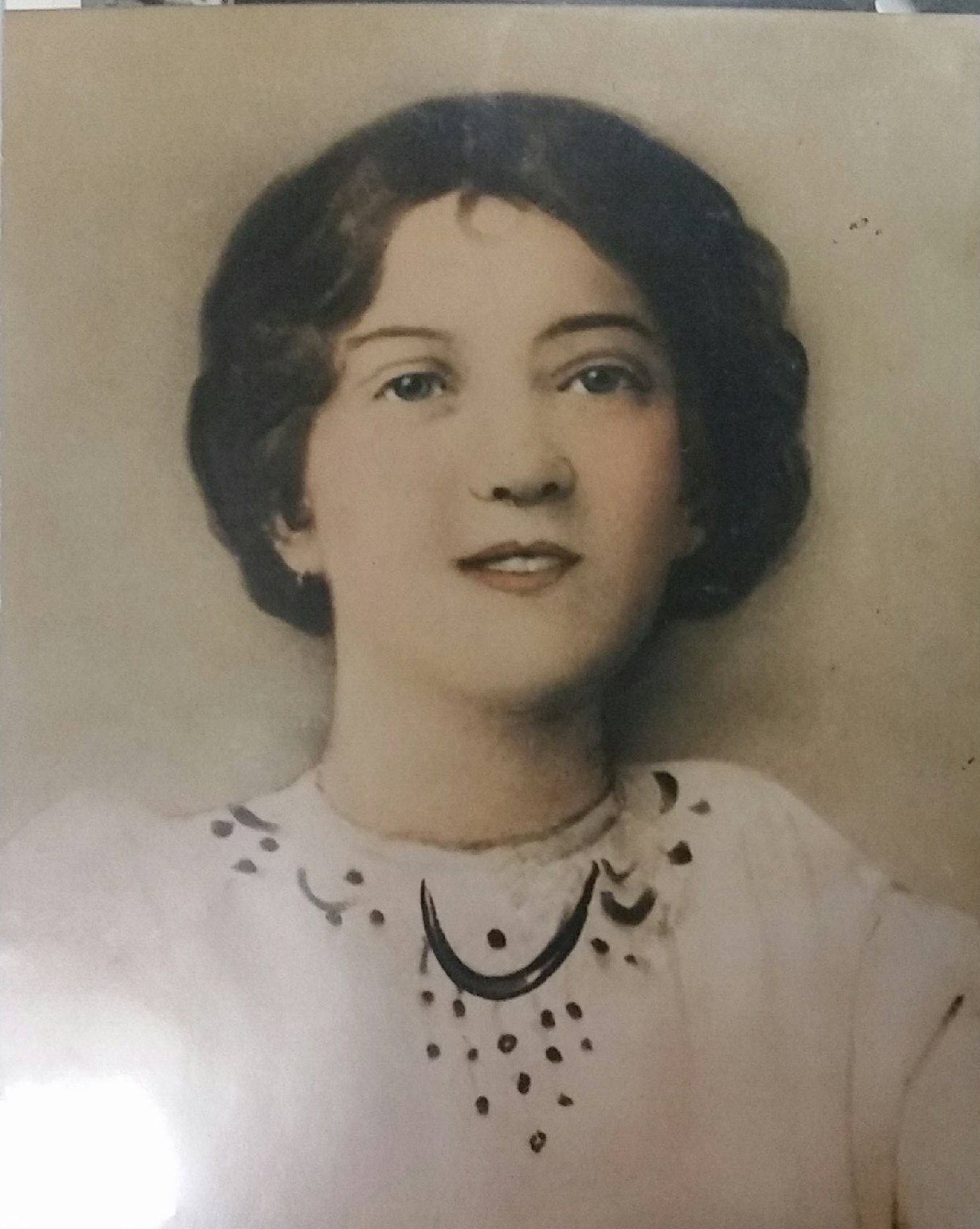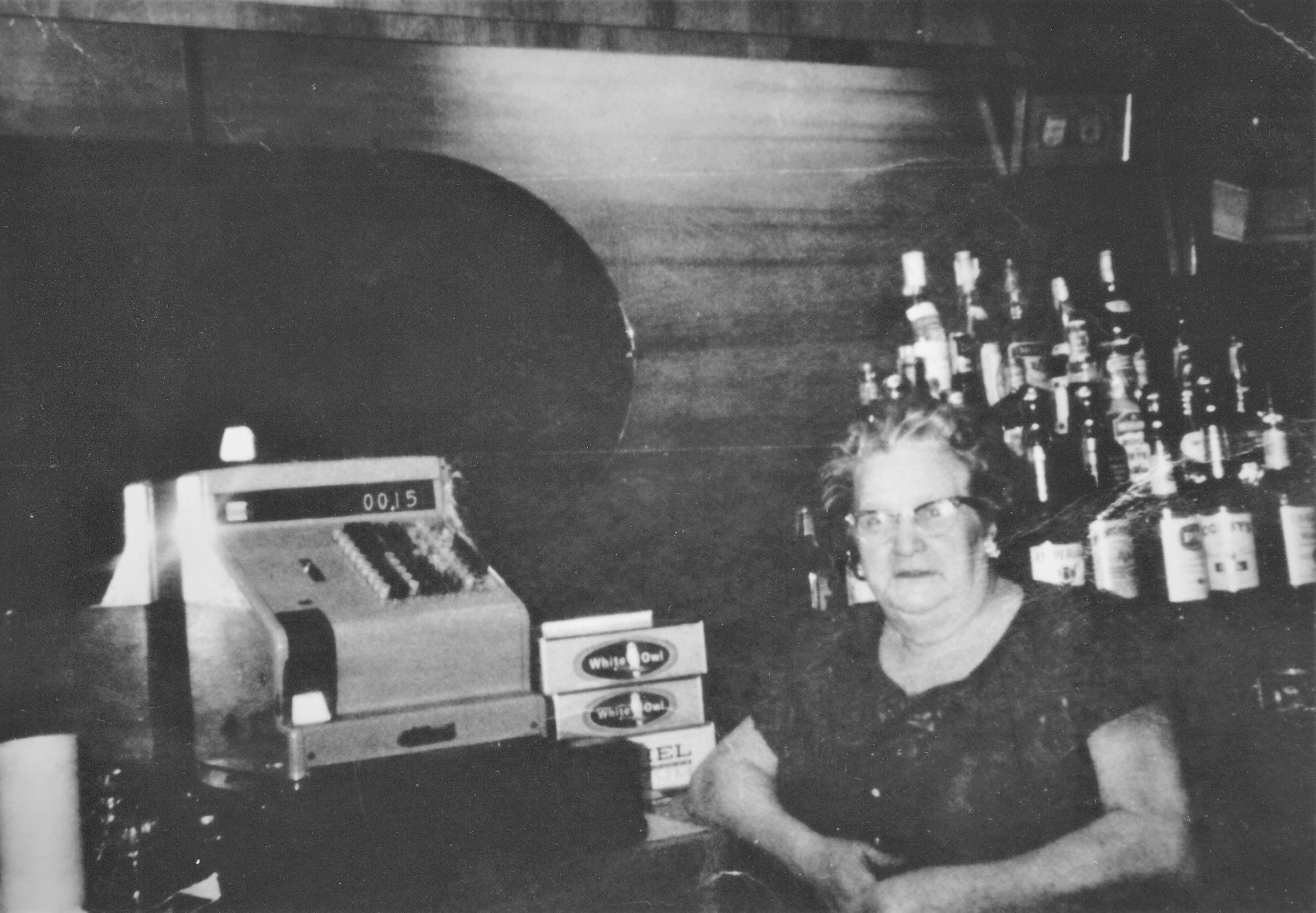I was born on April 11, 1949, in Hackensack, New Jersey. I was given the name of Denise at birth, but it was changed to Eileen on May 7, 1949. The story goes that after seeing the Hollywood star Denise Darcel in a movie one night, my father decided he did not want his daughter to have the name of one of Hollywood’s sexiest glamour actresses. Apparently, she was a buxom and alluring French siren after WWII, so the name change was made. He had visions that I might be the first of the “Een Sisters” (I am not even sure how he would spell it) who would form a singing group much like the McGuire Sisters. I am sure he was very disappointed that this did not happen, as not only could we not harmonize, but I don’t think any of us could even carry a tune. I was the second child and oldest daughter. There were five of us: Jimmy, Eileen, Darlene, Kevin, and Maureen. There were four years between Jimmy and me, four years between Darlene and me, but then Kevin and Maureen followed Darlene within a shorter time span. We were raised in Allendale, a small borough in Bergen County located in northern New Jersey.
It was a much different and simpler lifestyle when I was growing up. Every school day—remember this was a public school—began with the Pledge of Allegiance, a Bible verse, and praying the Lord’s Prayer. We didn’t have as many choices in many things, and our exposure to the larger world was much more limited and controlled, as we didn’t have 24/7 TV entertainment and news. Though I was fortunate to have made two trips to Florida when I was younger, my travel experiences were comprised of mostly northern New Jersey, New York City and New York area near NJ, and the Jersey Shore area, with some points in-between and thereabouts. We entertained ourselves with reading, board games, outside activities, and of course, playing with our friends. The outdoors was our preference. We didn’t have organized sports and activities through clubs like today’s world. I was active in sports, but they were more limited, intramural sports organized by my grammar school, not a sports club. I ran track and played field hockey, basketball, softball, or volleyball, depending on the season, as well as swim team in the summer. Another summer activity was attending vacation Bible school at our church, and I spent many hours working at my grandmother’s tavern and restaurant.
Our garage was never used for housing the cars but was a combination workshop, bicycle barn, and gym with a punching bag and sandbag, as well as a collection of boxing gloves. In our backyard, you would find parallel and chin-up bars, a basketball hoop, and probably the only large, self-created fighting ring/playpen which was built by my father. This pen, I believe, was made with black chicken wire and 2 x 4’s and probably measured 14 feet by 14 feet, if not larger. This was built as my younger siblings came along, one after the other, and it was large enough to corral not only all of us but also cousins and young friends who would be visiting. I am sure this was very welcomed by my mother and aunts especially when everyone gathered at our house for family picnics. I don’t think it was uncommon for our squabbles to be settled by putting on boxing gloves to fight it out, fair and square. Our yard also had at least one old military tool shipping box that was lined with heavy plastic used as our swimming pool. We eventually got a real plastic pool, but I don’t know when one replaced the other.
I had forgotten how handy and thrifty my father was. One summer, in addition to painting our house, my father, Uncle Leo, and cousin Tommy built a cinder-block wall along our front and side property lines and driveway. The wall became our balance beam which we would climb on, and the wall along the side yard was just the perfect height to allow us to spend many hours climbing the large punk tree. We had a field in the back used for football, tag, badminton, and other children’s games; and along the front and side property lines were woods to hide in, large rocks to climb, streams to jump over, and areas filled with skunk cabbage that we did our best to avoid. I remember all of this was through the eyes of a young child. A number of years ago when Jessica and I took a bike ride through Allendale, we went to see 133 West Crescent Avenue, and as we stood there looking at my house and play area from the new church parking lot next door, it all had shrunk considerably!
Our family seemed to have a tradition of breaking bones. When I was in the sixth grade, I fell down the stairs sleepwalking, dislocating my left arm and breaking my right wrist. Both arms were in casts, which excused me from certain school tasks being that I couldn’t write, so I had to take tests orally, and I had to rely on my classmate to take notes for me. I dislocated my left arm a second time that summer teaching my brother Kevin how to dive at Crestwood Lake. We went from practicing racing dives to doing Jack Knife dives. Unfortunately, it wasn’t until I was coming down after jumping off the wall, bending to touch my toes that I remembered we were not in the deep end of the lake. I went straight down into 3 or 4 feet of water, and the force of hitting the lake bottom dislocated my elbow again. I was babysitting that day. My poor mother was at the Veteran’s Hospital in East Orange, New Jersey, visiting my father who was there “drying out” after a binge. Unfortunately, the ambulance took me to Suffern Hospital in New York. For the next week, my mother was traveling back and forth between those hospitals and home until I was released.
In addition to being hit by a car while vacationing in Ortley Beach, Darlene broke her arm when Kevin let her go while she was hanging on the parallel bars. Darlene shared with me that Mom told her that she got up and started chasing him so she could beat him up. Kevin broke his leg once on his tricycle, and his foot twice. The first time, a brick from the school building came loose and fell on his foot during recess, and the second time, he was playing football. Maureen dislocated her shoulder falling from a bike.
Though Jimmy dislocated his shoulder in the Army, I don’t remember him breaking anything as a child. I do remember though, my parents talking about how he swallowed a very small piece of metal from a tuna fish can. This was when you opened cans with a key that was attached to the can. It would unravel a strip of metal around the top of the can, and apparently a tiny piece fell off getting mixed in with the tuna. I believe as he swallowed the tuna, it cut his throat causing him to cough up blood. Thank God my mother was a nurse because she always reacted to any emergency in a swift and efficient manner, never being emotional at that moment.
We were surrounded by most of my cousins on the Connelly side of the family; the Kunisches, the Dillons, and the Coateses; all 12 of us cousins attended Allendale’s Brookside School where we all had many of the same teachers. There was only one kindergarten class each year, so all 12 of us had Mrs. Baxter. In fact, even my uncle Frank Dillon had her as a kindergarten teacher. Brookside School contained kindergarten through 8th grade, and from there, we went to and graduated from different high schools, some from Ramsey, some from Mahwah, some from Waldwick, and the rest of us from Northern Highlands Regional in Allendale.
I spent much of my younger childhood days with my cousins Cathy Dillon and Art Kunisch. They were two of my closest companions in Allendale, as we were close in age and could easily walk or ride bikes to each other’s house. Art and I went through school together. Being Catholic and because we were public school students, the two of us also attended religious education classes one day a week after school at Guardian Angel Catholic Church taught by the nuns from St. Luke’s Catholic School, which was located down the road in Waldwick. We were both baptized at Guardian Angel and together we received the sacraments of First Reconciliation, First Holy Communion, and Confirmation, which were all celebrated afterwards with a large family gathering. I actually received all my sacraments to date at this church, as Bill and I were also married there. To tie it all up nicely, Bill stayed with Art the night before our wedding. Bill said that Art was more nervous than he was.
My best friend since kindergarten was Cheryl Kiss, and the Kisses lived right across the street from us. Cheryl, her parents, her sister, her grandparents—and we can’t forget her Uncle Ernie—lived in a large, old, three-story house with a basement, which her dad and uncle renovated through the years. In one of my selfish teenage moments when I ran away from home, I hid in Cheryl’s attic, her family completely unaware, until I finally decided it was time to go home and face the music. They were a very close family, and they included me in that circle, giving me another haven of love and support.
Cheryl was one of my other constant companions growing up. At times we were somewhat competitive but loyal to each other. Though we had our childhood tiffs, we had so many escapades together right through high school, some good and some not so good. For the most part, we always ran with the same crowd and seemed to date boys who also were good friends. We shared a memorable childhood and some unforgettable times in high school. Unfortunately, Cheryl died at a young age from alcoholism leaving behind a husband and three boys. Her twin boys were born just a couple of months after my twin girls. Our summers in Avon with my mother provided us opportunities to get our families together and spend days at the beach.
When I think about my years in Allendale, I can’t help but think about the many holiday town events that I participated in growing up, but I now realize I took for granted. The Holiday Observers of Allendale has provided special patriotic observances and traditions since 1919, and they certainly played an important part in my childhood. From the Christmas tree lighting and Christmas caroling downtown to the excitement of waiting for the arrival of Santa Claus on the town firetruck. From the July 4th field events giving kids the opportunity to compete and possibly win a trophy or ribbon in a variety of athletic events to the 4th of July fireworks display that night, bringing the townsfolk to the ball field. You wanted to get there early, so you would be able to park your car in a good spot on the field. Then we would climb or be lifted up to the car roof to enjoy the show. For Halloween, we participated in the Poster Painting Contest. Large poster cardboards were taped to the windows of downtown merchants’ windows. Groups of kids would compete painting their scariest, funniest, most frightening, or happiest Halloween scenes. That night there would be the Costume Parade where we were given gold coins and other prizes. As a majorette in 6th-8th grades, I would march in the Memorial Day parades. One of the stops to perform would be right in front of the AB&G where my grandmother would proudly line up chairs for her customers to sit and watch her granddaughter twirl. We also had Easter egg hunts, and it seemed like we just transitioned from one holiday to another before realizing another year had gone by in Allendale. No wonder my childhood years seemed to fly by, and what a great way it was to pass the time.
Thinking of spending summer vacations at Ortley Beach also stirs some wonderful memories. It seems there was always extended family there as well as other friends and guests. My parents would rent a bungalow on the beach, and my Aunt Margie and Uncle Walt would rent on the bay side. There would be mornings of crabbing, fishing, boating, and water skiing with the Kunisches, and then we would shuffle to our place to spend afternoons at the beach. It seemed that no matter which direction we walked on the beach, north or south, we would have family to visit along the way.
The Kunisches usually stayed there for three weeks, a week longer than we did. One summer my mother packed all five kids into the car, and we headed down to visit them for the day. Well, that day trip turned into a two- or three-day visit, so a run was made to the nearest discount store to purchase toothbrushes and other necessities for us. The two-bedroom bungalow just did not have enough sleeping space for all ten of us, so Art and I were farmed out to Uncle Walt’s friend staying up the road, Bobby and Jimmy slept in the car, and the others slept on the couch or cushions on the floor. A highlight of this visit was returning in the morning to the inviting smell of Uncle Walt’s famous home fries coming from the bungalow.
Winter brought snow for sledding and frozen waters for ice skating. We had a few places that we went to for ice skating. The Celery Farm was one of them, where you could find us skating up and down the canals and on the pond. It wasn’t far from home unless you fell through the ice and got wet or waited too long to head home as you were cold, damp, and freezing. At that point, it felt like a five-mile walk home, and you couldn’t walk fast enough because your toes were so cold and hurt so bad. Cheryl, other neighborhood kids, and I would also skate on the swamps back along the trolley tracks. They were more challenging because of large rocks, tree stumps and limbs, and small trees growing in the water that you could trip over. We would sled down Van Houten’s hill, which was very conveniently located just two houses up from Art’s house, so we could frequently run in for a snack and warm our feet, socks, and boots on the radiators at Aunt Margie’s.
Because of my father’s position with the UAW, we were fortunate to all go to Radio City Music Hall for shows, and Madison Square Garden to see events like the Ringling Brothers and Barnum & Bailey Circus, which was billed as The Greatest Show on Earth; the Ice Capades; and probably one of the most memorable shows being the rodeo with Roy Rogers and Dale Evans because we got to meet them personally after the show. It seems to me it was always a family affair with aunts, uncles, and cousins making a day of it with dinners beforehand. We would go to some of the most popular restaurants in NYC at the time, but I think the one the kids were most excited about was when we went to the Horn and Hardart Automat, where we could walk around and pick and choose our food. We thought that was the best! Even better than two of our other favorites that we all loved, Mamma Leone’s and Tad’s Steak House.
When I was probably in the sixth grade, my friends and I would take the train to Ridgewood to go to the movies. We walked from the train station to the movie theater, but sometimes after the movie we would have to run back to the train station to make sure we didn’t miss the train home. I think after we proved to our parents that we were responsible and could handle the train to Ridgewood, we probably started campaigning for trips to NYC for the day. I guess we were probably thirteen or fourteen, and it is hard to believe now that our parents let us do this. But as I said earlier, it was just a very different time. We would take the train to New York to walk around exploring the city, go to the village or central park, etc. then get a bite to eat before heading home.
An interesting fact is that when I was growing up, the TV didn’t have the wide channel selections and streaming options that we have today. There were maybe four or five TV stations to choose from. The stations did not start broadcasting till 7:00 a.m. each morning, and they shut down at 11:00 p.m. I would wake up Saturday morning and quickly get my bowl of cereal, so I could be sitting in front of the TV when it came on. There weren’t many arguments over what programs to watch because we didn’t have many choices. When I think about some of the shows like the Three Stooges and some of the cartoons, I realize they were pretty aggressive. Certainly they would not be acceptable today and would probably be blocked by all parental controls. But then we did have shows like Howdy Doody Time, Captain Kangaroo, and the Mickey Mouse Club. The “Spin and Marty” series on the Mickey Mouse Club was a favorite, as well as American Bandstand. My siblings and I also enjoyed watching Roy Rogers, Annie Oakley, The Little Rascals, Our Gang, and family shows like Ozzie and Harriet, Father Knows Best, and My Three Sons. All these shows featured loving and strong families that at times made my family seem abnormal. Looking back, I believe we were dysfunctional, but years later, I also learned there were quite a few other families that were also dysfunctional.
Some of the family shows were the Ed Sullivan Show, Lawrence Welk, and Million Dollar Movie which featured one movie a week. It was aired every night at 9:00 p.m., and one of my favorites being Yankee Doodle Dandy starring James Cagney. Interestingly, though there were some news shows, our daily news really came from the newspaper which most households had delivered to their homes. Some families might even have had two different papers delivered, a local paper and a New York paper. Though the news might not have been as timely as today, I believe most people trusted the written word more than TV news at that time.
Going to the movies was a special treat back then; and for me, a very special occasion was seeing my first musical, South Pacific, with my parents. I wasn’t aware at the time that this show triggered such powerful reactions and nearly inspired a race riot in Long Island, New York, because of its strong progressive message on racism. Racial prejudice would not have been tolerated in our house. Being about 11 at the time, I was just so taken with the love story and music that I was totally unaware of anything that would have been controversial. As we drove home, my father was singing some of the songs from the show. In fact, he did so for quite a time afterward as it was such a popular show then, and my father loved to sing. I chuckle thinking of my mother because she was more the humming type, which I now understand because I can’t carry a tune either. Another favorite musical was West Side Story starring Natalie Wood and George Chakiris. I was in love with George. My parents also really enjoyed the show and the music, but they totally overreacted one morning when I was blasting the music from the show on my stereo record player, which was in my bedroom on the far side of the house while I was showering in the bathroom, waking up just about the entire family. They actually forbade me to play my music in the mornings just because others were sleeping. Can you imagine?
My favorite Christmas gifts when I was about seven were my Annie Oakley holster with guns, rifle, hat, and I think I even had a skirt. My dad had sawhorses that Cheryl and I would throw towels or blankets over for saddles, make stirrups out of rope, and get all decked out with our Annie Oakley paraphernalia to ride our horses. We would spend hours playing Annie Oakley, riding horses, and running through the yard shooting at the bad guys. We would climb in the tree and jump down to ambush them. Another favorite pastime was playing school. The kitchen was the classroom and the students were usually Darlene, Kevin, and Maureen as well as any visiting cousins or friends. My favorite part of teaching was writing on the blackboard and grading papers. My mother shared with me once that she really thought I might become a teacher because of the hours I would spend playing school.
Recently, I came to the conclusion that my brother Jimmy was stuck with me a lot. I think as the other siblings arrived, my mother would make sure he took me with him wherever he was going. That is why I had my first puff of a cigarette at probably the age of eight or so because one of his friends had gotten hold of his parents’ cigarettes, and they met on the trolley tracks to give it a try. He insisted that I take a puff, so I couldn’t squeal on him. This was also true for my first taste of liquor as Jimmy and his friends were experimenting in my father’s bar. Those younger years, I was Jimmy’s shadow, and I guess that is why I was referred to as Coatsey’s little sister and maybe why I was a tomboy. I don’t think his friends knew my first name.
Apparently, he was a much more kind and patient older brother than I was as an older sister. I am sure Jimmy did things to try and ditch me, but luckily, they didn’t leave me scarred in any way. I never really thought of myself as a “mean kid,” but I have to admit Cheryl and I put my sister Darlene in the garage, tried to lock the door, and then take off so she couldn’t catch up with us. One time we just told her she couldn’t play with us because she wasn’t really my sister. Another time Cheryl and I tried to hang upside down by our legs, not on the parallel bars outside, but on the shower rod in our newly renovated bathroom. Of course, it was not strong enough to hold us and came crashing down. We quietly snuck out of the house, and later when questioned about it, I simply told my parents Darlene did it. Of course, she wasn’t tall enough to pull herself up there, but that didn’t factor into our equation when trying to decide what we would do. We did confess eventually. My parents were waiting for us to do so as they knew exactly what happened, and they knew it didn’t involve Darlene.
Life was simpler in my small town. For instance, when I was about four or five, I released the brake of my mother’s car, which was parked on the hill in front of Aunt Margie’s house. Our car rolled down the hill with me in it as it crashed into the patrol car belonging to Allendale Police Chief, Frank Parenti. I really don’t remember the details following that incident, but I know it was a lesson I learned and have never forgotten. To this day, I get anxious when I see a young child being left in a car unattended, even for a few minutes, especially parked on a hill.
Life was certainly full of surprises in a small town. Like the Saturday morning I thought my parents set me up for one of the biggest surprises of my life when they asked me to hop on my bike to ride to town for some hard rolls. When I entered the garage side door, I was totally shocked to find a beautiful horse standing in the middle of our garage. At that moment, I realized that I had the greatest parents ever! I had been pleading to have my own horse ever since I earned my Girl Scout Horsemanship Merit Badge. Once I got over the shock, I ran into the house shrieking, shouting, and thanking my parents, who looked totally stunned. As I babbled on and on, they understood my excitement, but now they were totally confused as they played no part in having this horse appear in our garage. After we all ran to the garage, they were convinced that I had not exaggerated or lost my mind, but they quickly and correctly put the puzzle pieces together. Apparently, as a practical joke on our neighbor Janice Hatrich, some of the local high school boys decided it would be amusing to kidnap and hide her horse in our garage. Disappointing for me but a great relief for Janice. To show her appreciation, I was given an open invitation to help groom and ride her horse, of which offer I did take advantage. In fact, that probably turned out to be a better deal all around as other crazes became more of a priority in my life.
Shortly after the excitement of finding the horse in my garage, my interest and enthusiasm shifted from horses to boys. It was probably also about this time that I outgrew being a tomboy and became more of a typical adolescent girl. After hanging out so much with my brother and his friends as well as my cousins Bobby and Art, I was now more interested in wanting to socialize and hang out with guys from school. I can’t remember if it was Mark Haltof or Bobby Turner who was my first boyfriend, so to speak; but at that age, you know how long those romances lasted—maybe a day, a week, or an hour! I really enjoyed rainy school days because after lunch, the 6th, 7th, and 8th graders got to dance in the gym. These occasions gave students opportunities to socialize and mingle with other students in our grade outside of our class and also with the 7th and 8th graders. It was during these dances that I got to know a special 7th grader, Scott Jordan. To this day and probably always, I will think of Scott whenever I hear the song “Earth Angel” because it seemed whenever that song was played, he would ask me to dance. I had my first kiss playing spin the bottle, and it was with Scott. Such a sweet memory of innocence that still brings a smile to my face whenever I think of those days.
May the blessings of each day,
Be the blessings you need the most.

